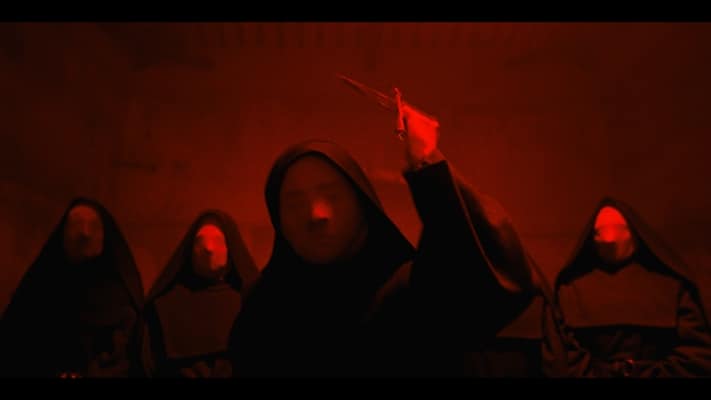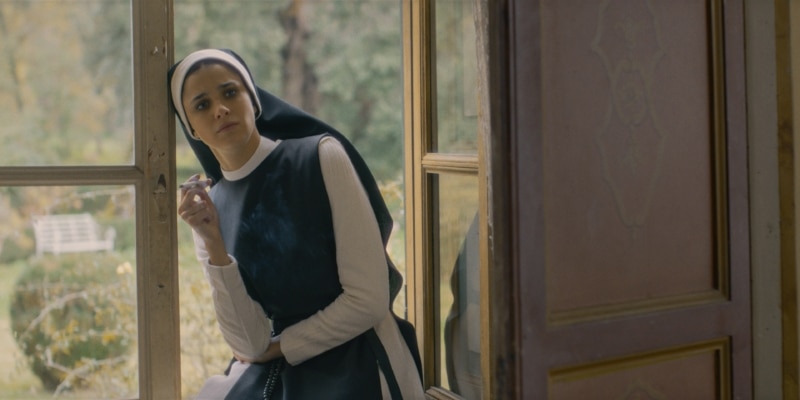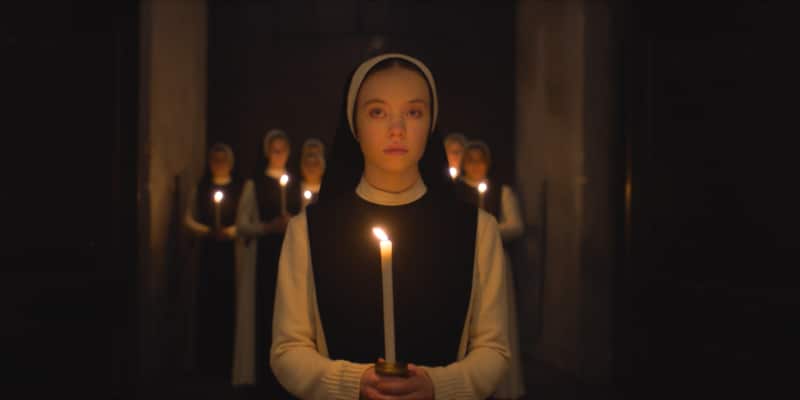Nunsploitation films are a subgenre within a subgenre. Films like these are for niche groups of audiences that enjoy, get a kick, or view it with a philosophical mindset. Classics and hidden gems like 1971’s The Devils, 1981’s Ms. 45, and 1994’s Dark Waters take the “holier than thou” concept and tend to flip it on its head. What comes out is a showcase of nunhood that sometimes comes in horror, comedic, and sexualized detail, generally through a decent artistic lens. Michael Mohan’s Immaculate tries to fit itself in high regard in the Nunsploitation genre and becomes an entertaining movie on some fronts.
Immaculate, directed by Mohan, written by Andrew Lobel, and starring Sydney Sweeney, is a demented “fish out of water” story. Sister Cecilia (Sweeney) has yet to take her vows into nunhood and decides to do so at a parish in the countryside of Italy. The fellow nuns and priest take her in with open arms, but a sinster plan has been put into action that’ll question Sister Cecilia’s faith in the church and her safety. The description is vague as hell, but that’s what you want going in Immaculate.
A chance for the film to get into the philosophy of the church could’ve been possible for this type of movie, but Lobel pushes that notion aside for a thin-layer story. It’s not necessarily bad because the movie knows what it wants to be and goes for it. There’s a level of mystery, and Immaculate presents itself as to why Sister Cecilia was chosen and handles the build-up to the reveal well. The film wastes no time getting to the point but surprisingly doesn’t feel rushed. The writing establishes the movie’s tone early on and chooses not to let up in any shape or form.

There’s a sense of eeriness and dour mood in the writing, which works perfectly well within the film’s setting. This church is supposed to be a place of hope and welcoming spiritually, but all I felt was darkness – a testament to the excellent scene setting. The third had been built up to this “oh s**t” moment that was slowly placed but hit its mark. The reveal of the church’s true intention was not farfetched within the context of Immaculate and leaned further into the horror element of the genre. Yet, Sweeney is another driving point in the movie.
The actress fits well in the role of Sister Cecilia. Sweeney plays the role of someone who refuses to be a victim but has no problem realistically handling her character. The character showcased a level of confidence that was present but not overbearing. I will admit that she has the potential to be the new scream queen if she decides to pursue that.
Most of the cast does a serviceable job, but nothing is entirely memorable. Benedetta Porcaroli, who plays Sister Gwen, works well with Sweeney, but she’s primarily there to give her a reason to smile and lighten up. Álvaro Morte’s Father, Sal Tedeschi, has a foreseeable arch change, and the mustache-twirling aspect of his character could’ve gone harder.

The portion that shines the most from the movie is Mohan’s direction. He can convey the level of dread needed for the film, which is atmospheric and keeps Immaculate engaging. What’s also impressive is the ramping up of the tension in the movie, which is well laid out for the most part. It’s when the third act kicks in that the film takes off…kind of.
I found the level of brutality and suspense in the film served its purpose to a point before pulling some of its punches. Immaculate finally tipped into the psychological horror and straight horror touch some of the nunsploitation films are known for, and the director uses that well enough. The gore was realistic and not cartoonish.
Sister Cecilia’s actions get increasingly intense as she tries to escape, but she makes it believable. It’s not really the edge of your seat, but it kept my attention for the most part. Yet, there could’ve been a way to fix that. The film could’ve gone harder with the gore and violent elements. The grotesque nature of the church’s evil plan warrants that type of direction from Mohan and would’ve made more of the movie memorable. It would’ve even given the film’s final five minutes a much more satisfying ending.

The nunsploitation genre has another good-to-great film to hold in its ranks, and the movie deserves it. Sweeney is an acting force worth watching and more than just a pretty face. She carried the film for the most part and understood the assignment. Immaculate could’ve used a bit more intensity in the psychological horror department, and a few more buckets of blood wouldn’t have hurt, either. The tight 89-minute mark is a bonus, but I would’ve been okay with more time if the movie had called for it—still a good flick to check out.

